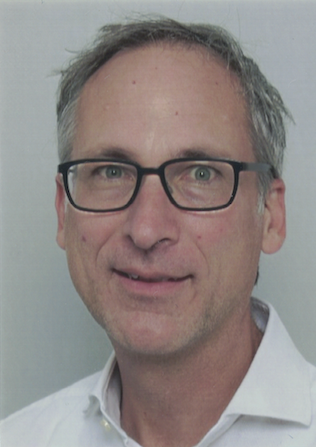Computer vision algorithms are stymied by occlusion, the result of information loss when a three-dimensional scene is projected onto a two-dimensional image. A new video processing approach that tackles the problem of fragmented occlusion will be introduced in "Fragmented Occlusion in Computer Vision", an invited talk by Roman Pflugfelder of TU München and Technion. The talk is part of OFAI's 2022 Lecture Series.
Members of the public are cordially invited to attend the talk via Zoom on Wednesday, 21 September 2022 at 18:30 CEST:
URL: https://us06web.zoom.us/j/84282442460?pwd=NHVhQnJXOVdZTWtNcWNRQllaQWFnQT09
Meeting ID: 842 8244 2460
Passcode: 678868
Talk abstract: Occlusion is an important and persistent problem in computer vision. Most of the modern, visual recognition algorithms suffer from occlusion. Making algorithms robust to occlusion is challenging, as occlusion is the result of an information loss that emerges from the projection of a three dimensional world onto a two dimensional image. This lecture will introduce fragmented or dynamic occlusion which appears when looking through foliage or when looking through a fence while walking. The problem is known in cognitive science but mostly ignored in computer vision. The current results in cognitive science tell us the importance of the temporal dimension in vision which introduces important clues for visual recognition under fragmented occlusion. Concepts such as the spatiotemporal form integration rely on motion percepts. Inspired by these psychological results, I will introduce a new video processing approach which is named video deocclusion. This approach is able to deocclude a fragmentally occluded, unknown object of interest in a sequence of images. I will also present results of a new algorithm based on deep learning which is able to localise persons behind trees where state-of-the-art object detection algorithms fail. This research is fruitful for a better understanding of the astonishing capabilities of human vision under dynamic occlusion. It is also useful for future applications of computer vision in natural environments.
Speaker biography: Roman Pflugfelder is a postdoctoral researcher at the Technical University of Munich and the Technion, Israel, Scientist at the AIT Austrian Institute of Technology and lecturer at TU Wien. He received in 2002 a MSc degree in Informatics at TU Wien and in 2008 a PhD in Telematics at the TU Graz, Austria. In 2001, he received the Kurt Gödel stipend from TU Wien for an academic visit to the Queensland University of Technology, Australia. His research aims at visual motion analysis, tracking, recognition, and learning applied to automated video surveillance. Roman contributed with 60+ papers and patents to research fields such as camera calibration, object detection, object tracking, event recognition. Roman co-organised the Visual Object Tracking Challenges VOT'13-14 and VOT'16-22 and was program chair of AVSS'15. Currently he is steering committee member of AVSS. He is regular reviewer for major computer vision and machine learning conferences and journals. He received in 2008 a national WWTF Career Grant, in 2014 the WACV Best Paper Award, in 2019 the CVPR Outstanding Reviewer award and 2021 a Marie Curie Fellowship.
